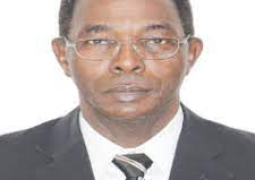
Senegal should serve as the guiding light for Gambia across all lanes, including its political environment and the active involvement of youth in politics. Senegal's political environment consists of sovereign citizens and the absence of tribal polarisation during elections. Unlike in Gambia, where tribal affiliation is often visible and influences voting behaviour, Senegalese voters prioritise national concerns over ethnic differences. The non-tribal voting tendency demonstrates that Senegal has sovereign citizens who understand that the nation's success is dependent on unity rather than tribal loyalty. As the great philosopher Kant put it, the metaphor of ‘immaturity’ suggests that mankind as a whole must also develop over time. Nature, therefore, guarantees enlightenment, or the ability to think for oneself. ‘The greatest benefit of knowledge is that it teaches us to manage the passions so thoroughly and skillfully that the miseries they produce are completely bearable and may even be a source of delight’ (The Enlightenment, Ritchie Robertson).
If there is one thing we learn from the just concluded election in Senegal, it is that youths are politically active, have a clear ideological subscription, and continuously hold leaders responsible for their actions. Their involvement is critical for influencing political conversation and developing accountability within the government. This is what Kant refers to as the two-hat doctrine in ‘Das Philosophie’. As a private individual, ‘I must pay my taxes, but as a member of the public, I may debate the state's budgetary policy in the press’, he says. While wearing my private hat, I must serve the state. With a clear vision of how they want their country to be governed, Senegalese youth expect greatness from their leaders, and civil society actively engages in policy development that benefits the country as a whole.
On the flip side, Gambia's political landscape is characterised by tribalism, caricature, and character assassination, with voter preference influenced by tribal affiliations, sympathy, or antipathies towards a candidate rather than the merits of policies and programmes or leadership qualifications. Additionally, Gambia's youth frequently lack a unified ideological framework, leaving them vulnerable to manipulation by political elites who profit from ethnic differences. This impedes the nation's advancement and maintains a cycle of underdevelopment and political stagnation. Emulating Senegal's political maturity (the sovereign citizen) can help Gambia achieve long-term growth. However, several key steps must be taken to realise this dream. First, there is a need for a paradigm shift towards sovereign citizenship (as Halifa Sallah puts it), where citizens can independently think for themselves without being influenced, manipulated, or prioritising national interests over their own. To accomplish this, massive national civic education programmes that promote national unity and build a sense of shared identity are required. Furthermore, empowering youth and women is important by providing them with critical thinking skills and a strong ideological basis. Gambia can build a generation of independent thinkers capable of pushing for good change and holding leaders accountable for their actions. The just-concluded election in Senegal serves as a valuable lesson for Gambia in fostering political maturity and advancing national development. By transcending tribal divisions, engaging the youth, and promoting sovereign citizenship, Gambia can overcome its political challenges and chart a course towards a brighter future and emocratization. The path to political maturity might be difficult, but the benefits of a unified and thriving society are unquestionably valuable.
Read Other Articles In Opinion




